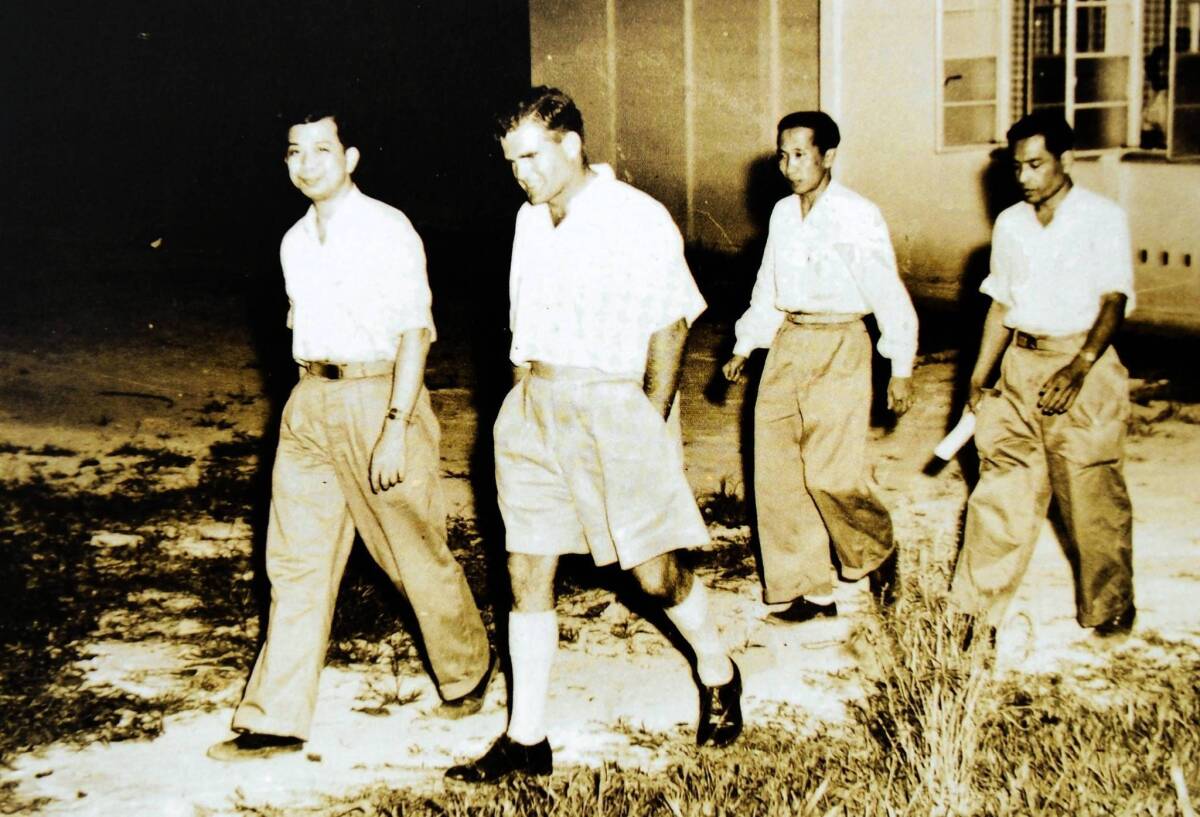Chin Peng dies at 88; leader of failed communist revolt in Malaysia

- Share via
Chin Peng, a tough former communist guerrilla who led a bloody but failed insurgency against British rule in Malaysia in the late 1940s and early 1950s, died Monday in Bangkok after decades in exile. He was 88.
Chin Peng, whose real name was Ong Boon Hua, died of cancer at a private hospital, according to his former lawyer in Malaysia, Darshan Singh Khaira, and officials in Thailand. He adopted a pseudonym for his political work.
He was the last of a breed of Asian anti-colonialist figures that included Vietnam’s Ho Chi Minh, Indonesia’s Sukarno, Myanmar’s Aung San and Cambodia’s King Norodom Sihanouk, who died last year. Chin Peng’s distinction was that unlike the others, he didn’t win his struggle.
“I suppose I am the last of the region’s old revolutionary leaders,” Chin Peng wrote in his 2003 memoir “My Side of History.” “It was my choice to lead from the shadows, away from the limelight.”
Chin Peng also lost a legal battle in recent years to be allowed back into Malaysia, and the country’s prime minister was quoted Monday as saying that even in death his return would be barred.
Born Oct. 21, 1924, in the northern Malaysian state of Perak, Chin Peng gained public attention during World War II, when he and other guerrillas provided the bulk of resistance to the Japanese occupation after Allied troops were swept from the Malayan peninsula and Singapore.
He was a courageous, behind-enemy-lines fighter, learning guerrilla tactics from his British then-comrades-at-arms in the jungles, and was even awarded the high honor of the Order of the British Empire — which was later rescinded.
He also became a committed communist.
The ethnic Chinese were an underprivileged class in British-ruled Malaya, and for a number of young people among them, communism represented social justice and a shortcut to power and status.
“Most of the British colonials who came after the surrender of Japan were not just opportunists and corrupt; they were downright disdainful of the people they were exploiting,” Chin Peng wrote.
In 1948, the Communist Party of Malaya decided to wage armed struggle, and fired the opening shot on June 16 when guerrillas walked into two rubber plantations in the country’s north and executed three British planters.
“I make no apologies for seeking to replace such an odious system with a form of Marxist socialism. Colonial exploitation, irrespective of who were the masters, Japanese or British, was morally wrong,” he wrote. “If you saw how the returning British functioned the way I did, you would know why I chose arms.”
Leading a 10,000-strong force, Chin Peng faced 70,000 British, Australian, New Zealand, Fijian, Gurkha and other British Commonwealth troops in the jungles between 1948 and 1957.
The war, known as the Emergency, took the lives of an estimated 10,000 fighters and civilians, and stamped out communism from Malaysia.
Chin Peng contended the British were at least as brutal. Tens of thousands of often innocent Chinese were uprooted as a result of the ultimately successful strategy to isolate the guerrillas from all sources of support.
Chin Peng continued to fight the Malaysian government even after the country became independent of Britain in 1957. But with the dragnet closing in on his jungle hideouts and his Marxist-Leninist campaign losing steam, he fled to China in 1960. From there, he went to southern Thailand to reunite with hundreds of fighters loyal to him.
He was never allowed to return even though he signed a peace treaty in 1989 and pledged loyalty to the Malaysian government. Malaysian authorities remained suspicious of his communist ideology.
More to Read
Start your day right
Sign up for Essential California for the L.A. Times biggest news, features and recommendations in your inbox six days a week.
You may occasionally receive promotional content from the Los Angeles Times.






